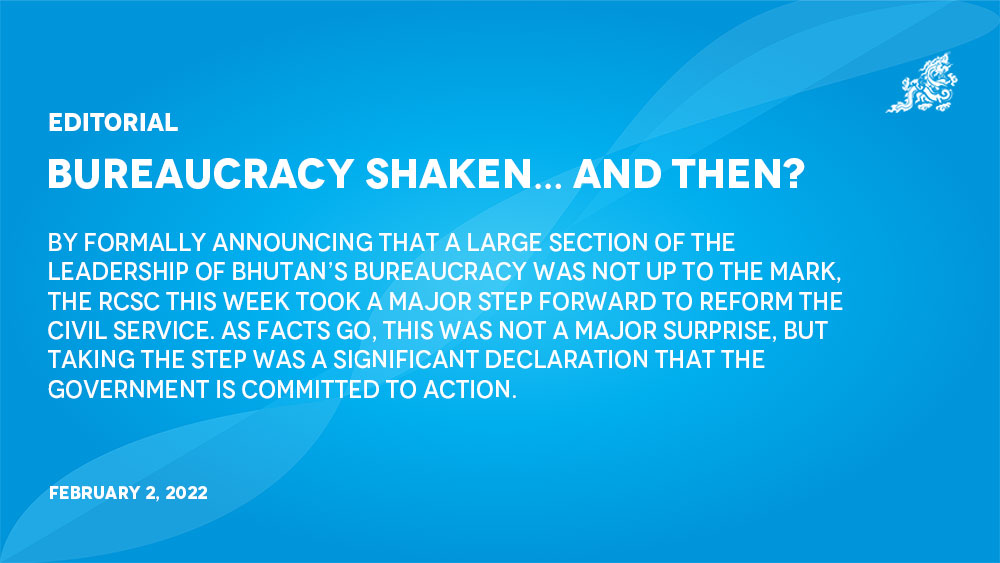By formally announcing that a large section of the leadership of Bhutan’s bureaucracy was not up to the mark, the RCSC this week took a major step forward to reform the civil service. As facts go, this was not a major surprise, but taking the step was a significant declaration that the government is committed to action.
This is not a decision that is a goal in itself but the beginning of a process to raise the quality and standard of public service. It is a clear message that there is a higher vision for the nation that cannot be achieved with mediocre effort.
Despite the waves that the announcement will inevitably create in our small society, it is not about who did not make the mark. It proves that the system lacks professionalism in management. After all, they were maneuvered by a system where people are not placed in positions based on their skills or even their qualifications.
We should not be distracted by the remarks of online commentators, many being civil servants with unfulfilled personal ambitions or insecurities about their own performance. If we ask a room full of civil servants to raise their hands if they had achieved their potential we would see very few hands.
What we appreciate is that this was a difficult decision to correct a system that has been allowed to go wrong through unprofessional planning, inept leadership, and ineffective decisions. How will we react to the rug being pulled from under our feet?
The vital step, now, is to identify capable and talented officials to take up the crucial responsibility to govern public service… to place the right people in the right places. This means changing selection and evaluation criteria that have not worked. More important, it means changing a mindset that is the real problem.
We also know that the flaws are not a RCSC monopoly. All public and private institutions and organisations, meaning the entire system of governance, need to take note, to pay heed, and to act. In Bhutan, this means the service forces, SOEs, public and private corporations, media and civil society. The government must, and has, taken the lead.
We should be relieved more than unsettled by the RCSC decision. At the start of his reign His Majesty The King appealed to the civil service:
“…society – whether it is the general public or the private sector – will always follow the bureaucracy’s example. Therefore, you must set higher goals and work harder than others. Your principles and actions must be a model of service to the people and country.”
This Royal advice has been patiently repeated over the years, largely unheeded. The Bhutanese bureaucracy had come to be identified with complacency and indifference. Fourteen years later, in 2020, the Royal guidance peaked as a Kasho (Royal edict) to fundamentally restructuring the civil service so that it has a renewed vision for the 21st century.
Dare we hope that, at a time when we claim to be reimagining development after the severe national and global Covid-19 crisis, this is a sign that the government is responding to a new vision? If the change in a central force like the bureaucracy does not work, then nothing will.


